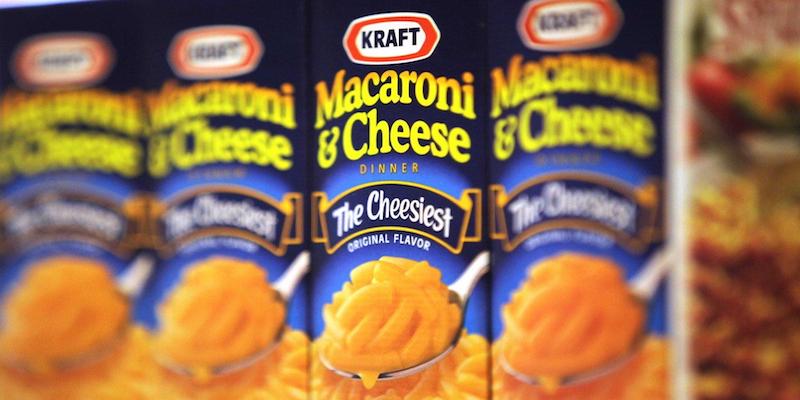- Study Says Most Parents Don’t Use Car Seats In Ride Share Vehicles Like Uber
- This 12-Year-Old Boy Is A Sophomore Aerospace Engineering Major!
- Fire Safety Experts Warn Of Hand Sanitizer Danger After A Mom and Kids Escape House Fire
- Recall Alert: Peaches May Be The Cause Of Salmonella Outbreak, 68 People Ill
- Summer Vacation In The Days Of COVID: Tips To Stay Safe
- How To Safely Grocery Shop During The Coronavirus Pandemic
- Michigan Teen With Vape-Related Illness Undergoes Double Lung Transplant
- Teen Kicks Off Anti-Vaping Campaign From Hospital Bed
- Teenager Receives Life Sentence For Strangling Sister To Death Over A Wi-Fi Password
- Toddler Falls To Death From 11th Deck of Cruise Ship
Study Says Powdered Mac And Cheese, Like Kraft, May Contain Toxic Chemicals


Boxed mac and cheese is popular amongst kids and poor college students, however new research shows there may be harmful chemicals in the powdered cheese.
Tests discovered that toxic industrial chemicals, called phthalates, are found in 10 varieties of macaroni and cheese, including 8 out of 9 Kraft products.
Phthalates are hormone-disrupting chemicals which could cause reproductive and thyroid issues, as well as neurological problems in children and unborn babies.
The Coalition for Safer Food Processing & Packaging says that it’s actually a matter for the federal government to regulate which should prohibit these chemicals, but “Trump’s Food and Drug Administration has yet to act,” said coalition member Peter Lehner in a statement.
So for now, the coalition looks to Kraft Heinz, makers of the Kraft mac and cheese, to remove phthalates from their food.
In addition to Kraft having the largest market for powdered cheese in the industry, they have also taken action in the past to ensure that their foods are safer, based on scientific and consumer concerns.
Out of all 30 cheese products tested (10 cheese powder, 85 sliced cheese and 15 natural cheese samples), 29 of them had phthalates. Powdered mac and cheese products contained the highest amount of phthalates of all the types of cheese tested.
These chemicals aren’t meaningfully added into foods, they’re in fact accidental add-ons from contact materials during preparation, processing and packing.
Regulating their infiltration of our food happens by ensuring safer food processing and packaging methods are in place.
Kraft has not necessarily changed their practices to be more dangerous, but rather that our understanding of these chemicals has advanced in recent years. A 2014 study stated that dairy products were the largest contributor to phthalate exposure through the diet and even more recently, the European Union took action to ban the chemicals in food contact materials.
“Parents and their children,” Lehner said, “should not have to wait longer to know that their food does not contain toxic chemicals. We are asking manufacturers to act now.”
Kraft has not yet commented in response to the study,








0 comments